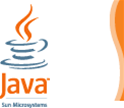
The flaw could allow an attacker to remotely execute code on a Windows, Linux, or Solaris system. Sun issued patches for both vulnerabilities in December.
The JRE component allows Javascript code to be executed on most operating systems, including Windows, MacOS, Linux, and Unix.
The vulnerabilities affect JRE 1.3.x, 1.4.x, and 1.5.x, as well as versions 1.3.x and 1.4.x of the Software Development kit and versions 1.5.x of the Java development kit (JDK).
Danish Security vendor Secunia rates one of the vulnerabilities as "highly critical," the company's second-highest level, due to the possibility for remote code execution.
Although uncommon, exploits against Java vulnerabilities occasionally pop up, said Eric Sites, vice president of research and development for Sunbelt Software.
"Sun has been very thorough and steady in the stuff it implements and how fast it implements it," said Sites.
Sites pointed out that Java is inherently a more secure system, because JRE uses so-called sandboxing that allow it to operate as a virtual machine that blocks access to other parts of the system.
He cautioned, however, that as developers create Javascript applications that required more capabilities, they begin to call up .dll files from the system. As soon as the programs reach outside of the virtual machine for system files, the security protection of the sandbox is negated.
Sites said that this latest exploit was particularly worrisome, as the code could be embedded in a small java application that launches from a browser window and could deliver a malicious payload very quickly.

.png&h=140&w=231&c=1&s=0)

_(28).jpg&h=140&w=231&c=1&s=0)






 iTnews Benchmark Awards 2026
iTnews Benchmark Awards 2026
 iTnews Executive Retreat - Security Leaders Edition
iTnews Executive Retreat - Security Leaders Edition
 iTnews Cloud Covered Breakfast Summit
iTnews Cloud Covered Breakfast Summit
 The 2026 iAwards
The 2026 iAwards












_(1).jpg&h=140&w=231&c=1&s=0)



